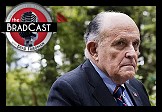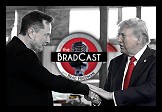 A House united. That seems to be the effect that Diebold has had on the state of Maryland where they had initially deployed their paperless touch-screen voting machines in 2002 as one of two "showcase" states along with Georgia.
A House united. That seems to be the effect that Diebold has had on the state of Maryland where they had initially deployed their paperless touch-screen voting machines in 2002 as one of two "showcase" states along with Georgia.
That "showcase" has turned into yet another public relations fiasco for Diebold of late.
The Republican Governor there recently slammed Diebold's paperless system, called for paper ballots and announced he had lost confidence in the State Board of Election and its Diebold-supporting Director, Linda Lamone, to carry out a fair election. Then information surfaced that Lamone had allowed MD to use uncertified Diebold software in the 2002 and 2004 elections. Then revelations were made public of massive machine failures in 2004. And now this from MD's Democratic House...
The state House of Delegates this week voted 137-0 to approve a bill prohibiting election officials from using AccuVote-TSx touch-screen systems in 2006 primary and general elections.
...
The bill was sent onto the State Senate for a vote after the House action, she said.
Healey said the effort was inspired in part by concerns raised by officials in California and Florida that the Diebold systems have inherent security problems caused by technological and procedural flaws.
Note the reference to the AccuVote-TSx system in the above is an error in ComputerWorld's reporting. Maryland uses the AccuVote-TS system which does not include a "voter-verified paper trail" --- unlike the newer TSx model which does.
Also note, the movement in the MD statehouse is calling for "paper receipts" or "paper trails" which is a far cry from paper ballots --- you know, those things which are actually counted, unlike paper "receipts" or "trails" which are not. Though their interim plan to lease optical-scan machines for 2006 would mean there would actually be ballots used --- at least until 2008.
Washington Post who ran a story on this on the front page of this morning's print edition (though it's labelled as page B04 on their website), led this way:
The 137 to 0 vote in the House and the endorsement of the plan this week by Republican Gov. Robert L. Ehrlich Jr. represents a stunning turnaround for a state that was on the leading edge of touch-screen voting in 2001, and it reflects a national shift toward machines that provide a paper record.
The MD Senate still has to approve the bill, and there is said to still be some opposition there. WaPo reports that the Senate is hoping to arrange for Diebold to bring in their newer TSx machines (which include an uncountable "paper trail") to avoid a massive state-wide switch to optical-scan machines this late in the year.
As well, the WaPo story allowed for an unchallenged quote from MD's former Sec. of State, and Diebold supporter, John T. Willis, who is quoted as saying, "There is no evidence of anything wrong with Maryland elections."
Wrong, John. We guess neither you nor WaPo read our previous article in which we wrote about an internal review by the MD State Board of Elections compiled after the 2004 election titled "Lessons Learned" [PDF]. The report reveals --- amongst many other problems --- that "189 voting units (7%) of units deployed failed on Election Day. An additional 122 voting units (or 5%) were suspect based on number of votes captured."
TrueVoteMD, as well, issued a massive document dump yesterday with loads of "evidence of anything wrong with Maryland elections" including information on a five-month "Diebold-imposed lockdown" on machines after Maryland's "November 2004 meltdown."
Still and all, of course, all of this is certainly a move in the right direction, and yet another stain on Diebold's atrocious record in the Voting Machine Industry and as once-great American company.


 Sunday 'Like it or Not' Toons
Sunday 'Like it or Not' Toons Not All Bad: Abortion Rights Won Big (Almost) Everywhere: 'BradCast' 11/7/24
Not All Bad: Abortion Rights Won Big (Almost) Everywhere: 'BradCast' 11/7/24 'Green News Report' 11/7/24
'Green News Report' 11/7/24
 U.S. CHOOSES CONVICTED CRIMINAL, ADJUDICATED RAPIST: 'BradCast' 11/6/24
U.S. CHOOSES CONVICTED CRIMINAL, ADJUDICATED RAPIST: 'BradCast' 11/6/24 ELECTION DAY 2024: Tea Leaves, Probs for Some Voters, Details on What's Next: 'BradCast' 11/5/24
ELECTION DAY 2024: Tea Leaves, Probs for Some Voters, Details on What's Next: 'BradCast' 11/5/24 'Green News Report' 11/5/24
'Green News Report' 11/5/24 'Closing Arguments' for Undecideds, Third-Party Voters: 'BradCast' 11/4/24
'Closing Arguments' for Undecideds, Third-Party Voters: 'BradCast' 11/4/24 Sunday 'Your Choice' Toons
Sunday 'Your Choice' Toons The GOP 'Voter Fraud' Before the Storm: 'BradCast' 10/31/24
The GOP 'Voter Fraud' Before the Storm: 'BradCast' 10/31/24 'Green News Report' 10/31/24
'Green News Report' 10/31/24 'Closing Arguments'with Digby and Driftglass: 'BradCast' 10/30/24
'Closing Arguments'with Digby and Driftglass: 'BradCast' 10/30/24 Trump Promises to be a Lawless, Authoritarian President. Believe Him: 'BradCast' 10/29/24
Trump Promises to be a Lawless, Authoritarian President. Believe Him: 'BradCast' 10/29/24 Ballots Burn, Billion-aires 'Obey in Advance', Callers Ring In: 'BradCast' 10/28/24
Ballots Burn, Billion-aires 'Obey in Advance', Callers Ring In: 'BradCast' 10/28/24 Musk's Privatized Internet Satellite System Threatens U.S. National Security
Musk's Privatized Internet Satellite System Threatens U.S. National Security Harris on Hope, Trump's Fascism in Bumpy Closing Days: 'BradCast' 10/24/24
Harris on Hope, Trump's Fascism in Bumpy Closing Days: 'BradCast' 10/24/24 Kelly: Trump 'Fascist', Admires Hitler, Disrespects Law: 'BradCast' 10/23/24
Kelly: Trump 'Fascist', Admires Hitler, Disrespects Law: 'BradCast' 10/23/24 Accountability Comes For Rudy, Other Election Deniers: 'BradCast' 10/22/24
Accountability Comes For Rudy, Other Election Deniers: 'BradCast' 10/22/24 Elon Musk's 'Vote Buying' and Lying for Trump: 'BradCast' 10/21/24
Elon Musk's 'Vote Buying' and Lying for Trump: 'BradCast' 10/21/24
 VA GOP VOTER REG FRAUDSTER OFF HOOK
VA GOP VOTER REG FRAUDSTER OFF HOOK Criminal GOP Voter Registration Fraud Probe Expanding in VA
Criminal GOP Voter Registration Fraud Probe Expanding in VA DOJ PROBE SOUGHT AFTER VA ARREST
DOJ PROBE SOUGHT AFTER VA ARREST Arrest in VA: GOP Voter Reg Scandal Widens
Arrest in VA: GOP Voter Reg Scandal Widens ALL TOGETHER: ROVE, SPROUL, KOCHS, RNC
ALL TOGETHER: ROVE, SPROUL, KOCHS, RNC LATimes: RNC's 'Fired' Sproul Working for Repubs in 'as Many as 30 States'
LATimes: RNC's 'Fired' Sproul Working for Repubs in 'as Many as 30 States' 'Fired' Sproul Group 'Cloned', Still Working for Republicans in At Least 10 States
'Fired' Sproul Group 'Cloned', Still Working for Republicans in At Least 10 States FINALLY: FOX ON GOP REG FRAUD SCANDAL
FINALLY: FOX ON GOP REG FRAUD SCANDAL COLORADO FOLLOWS FLORIDA WITH GOP CRIMINAL INVESTIGATION
COLORADO FOLLOWS FLORIDA WITH GOP CRIMINAL INVESTIGATION CRIMINAL PROBE LAUNCHED INTO GOP VOTER REGISTRATION FRAUD SCANDAL IN FL
CRIMINAL PROBE LAUNCHED INTO GOP VOTER REGISTRATION FRAUD SCANDAL IN FL Brad Breaks PA Photo ID & GOP Registration Fraud Scandal News on Hartmann TV
Brad Breaks PA Photo ID & GOP Registration Fraud Scandal News on Hartmann TV  CAUGHT ON TAPE: COORDINATED NATIONWIDE GOP VOTER REG SCAM
CAUGHT ON TAPE: COORDINATED NATIONWIDE GOP VOTER REG SCAM CRIMINAL ELECTION FRAUD COMPLAINT FILED AGAINST GOP 'FRAUD' FIRM
CRIMINAL ELECTION FRAUD COMPLAINT FILED AGAINST GOP 'FRAUD' FIRM RICK SCOTT GETS ROLLED IN GOP REGISTRATION FRAUD SCANDAL
RICK SCOTT GETS ROLLED IN GOP REGISTRATION FRAUD SCANDAL VIDEO: Brad Breaks GOP Reg Fraud Scandal on Hartmann TV
VIDEO: Brad Breaks GOP Reg Fraud Scandal on Hartmann TV RNC FIRES NATIONAL VOTER REGISTRATION FIRM FOR FRAUD
RNC FIRES NATIONAL VOTER REGISTRATION FIRM FOR FRAUD EXCLUSIVE: Intvw w/ FL Official Who First Discovered GOP Reg Fraud
EXCLUSIVE: Intvw w/ FL Official Who First Discovered GOP Reg Fraud GOP REGISTRATION FRAUD FOUND IN FL
GOP REGISTRATION FRAUD FOUND IN FL




























 Maryland's Republican Governor Ehrlich continues to face the music about the Diebold voting machines that his state bought into hook, line and sinker (emphasis on sinker). He's been had by Diebold's use of the state as a "showcase", but at least he now seems brave enough to admit it, even while the Diebold dead-enders (like State Elections Board Chairman Gilles W. Burger and Democratic Election Administrator Linda H. Lamone who brokered the deal) are trying to hang on to the very last.
Maryland's Republican Governor Ehrlich continues to face the music about the Diebold voting machines that his state bought into hook, line and sinker (emphasis on sinker). He's been had by Diebold's use of the state as a "showcase", but at least he now seems brave enough to admit it, even while the Diebold dead-enders (like State Elections Board Chairman Gilles W. Burger and Democratic Election Administrator Linda H. Lamone who brokered the deal) are trying to hang on to the very last. Signs are good in Maryland --- Diebold's original "showcase state" --- that the legislature there is finally wising up to the democracy undermining problem that is Diebold.
Signs are good in Maryland --- Diebold's original "showcase state" --- that the legislature there is finally wising up to the democracy undermining problem that is Diebold.













